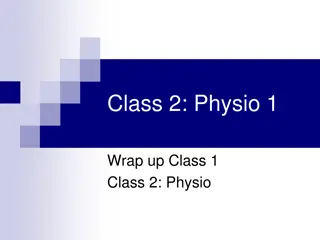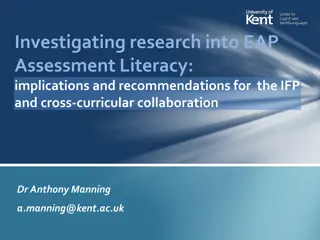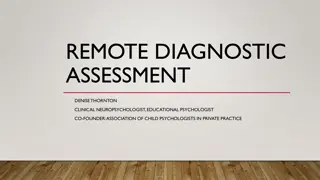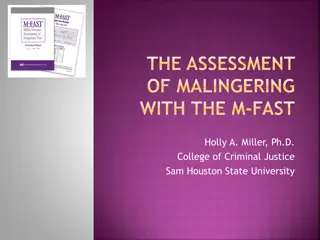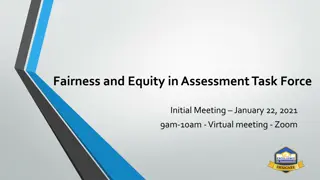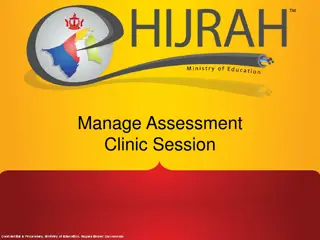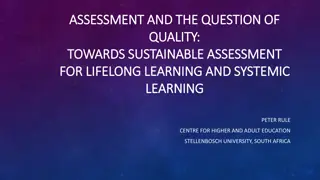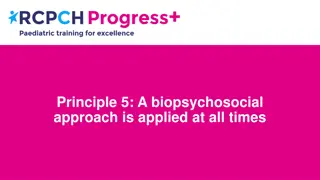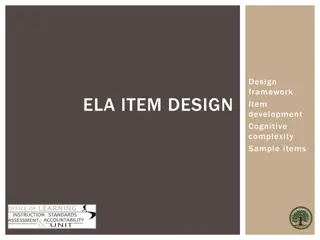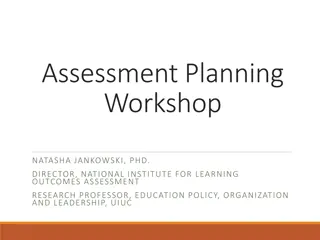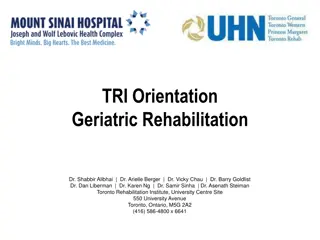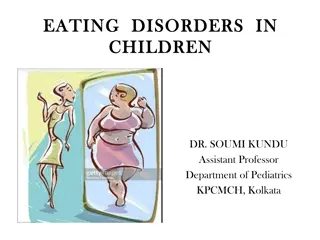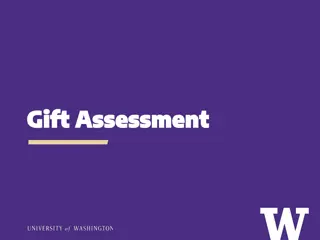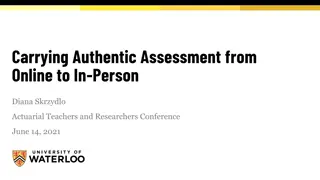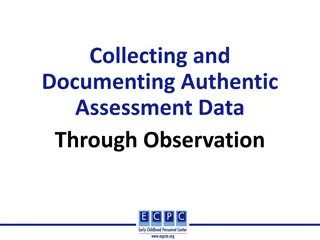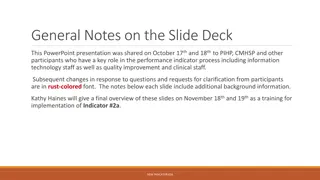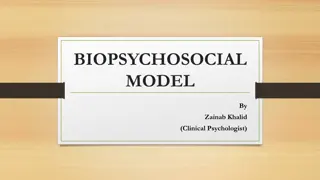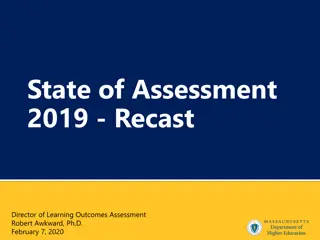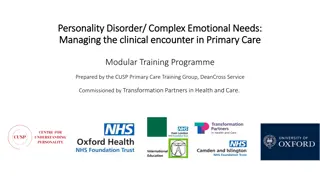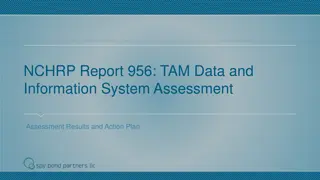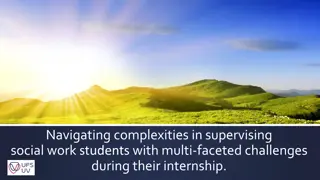Understanding Nocebos and the Biopsychosocial Model in Healthcare
Exploring the concept of nocebos, neutral substances believed to be harmful, and their effects on the human body. Delving into the importance of the biopsychosocial model in healthcare, which considers various factors impacting health beyond just the physical aspect, emphasizing the interconnectedne
2 views • 39 slides
Palliative Care in Sickle Cell Disease: Enhancing Quality of Life
Explore the importance of palliative care in sickle cell disease, focusing on biopsychosocial factors and quality of life impacts. Review literature related to palliative care, advance care planning, and end-of-life care in SCD. Learn about potential roles for palliative care involvement to enhance
4 views • 41 slides
Sheffield Early Help Assessment Form Update and Integration with Extended Support Plan
Sheffield has introduced an updated Early Help Assessment form to streamline the assessment process within the Early Help System. This new form combines the Early Help Assessment with the Extended Support Plan, aligning various assessment tools and referral forms into one comprehensive document. The
5 views • 22 slides
Enhancing Language Learning Through Peer Assessment
Explore the benefits of peer assessment as a valuable tool for language learning, comparing it with self-assessment. Discover the components and challenges of self-assessment, along with the potential of peer assessment to improve accuracy and promote self-regulation. Gain insights into what peer as
3 views • 29 slides
Investigating EAP Assessment Literacy for IFP and Cross-Curricular Collaboration
This research project by Dr. Anthony Manning explores the implications and recommendations regarding EAP assessment literacy for the International Foundation Program (IFP) and cross-curricular collaboration. The study delves into defining assessment literacy, research objectives, relevant literature
3 views • 26 slides
Overview of DSW End Point Assessment Team Leader Level 3
DSW End Point Assessment Team Leader Level 3 provides a clear understanding of the assessment process, ensuring individuals comprehend why and when it occurs, responsibilities involved, and how DSW supports them. It covers topics such as what End Point Assessment entails, assessment design and deliv
1 views • 18 slides
Understanding the Biopsychosocial Model of Healthcare: Insights from Dr. Caryl Sibbett
Exploring the biopsychosocial model of healthcare through the work of Dr. Caryl Sibbett at Kairos Consultancy in 2020. This model emphasizes the interconnected aspects of biology, psychology, and social factors in understanding and treating disease. It challenges the dominance of the biomedical mode
1 views • 18 slides
Remote Diagnostic Assessment Explained by Clinical Neuropsychologist
Remote diagnostic assessment, also known as telepractice, allows assessors and individuals to be in separate locations while using internet-connected devices for assessment sessions. A facilitator may be present for support, and precautions are taken to ensure confidentiality and integrity of the as
3 views • 13 slides
Understanding Malingering: Assessment and Implications
Malingering, intentional fabrication of symptoms for external gain, presents challenges in assessment. The M-FAST (Miller Forensic Assessment of Symptoms Test) offers a detailed approach for identifying malingering behaviors. Research suggests relying solely on clinical judgment may lead to inaccura
5 views • 24 slides
Fairness and Equity in Assessment Task Force Meeting Overview
The Fairness and Equity in Assessment Task Force is committed to establishing guidelines to ensure fairness in assessment processes at the University of Florida. The task force members are tasked with developing models and guidelines for faculty and staff to promote equitable assessment practices. R
1 views • 29 slides
Lancashire Assessment and Planning Framework: Enhancing Child Welfare Through Comprehensive Assessments
The Lancashire Assessment and Planning Framework outlines the approach for assessing and managing child welfare cases in Lancashire. It emphasizes the importance of effective assessment, planning, and interventions to meet the needs of children and families. The framework integrates tools like the C
0 views • 13 slides
Understanding Assessment in Medical Education
Exploring the concepts of assessment in medical education, including defining assessment, types of assessment, reliability, validity, and aligning assessment methods with intended learning outcomes. The importance of constructive alignment and the impact of assessment on learning outcomes are also d
1 views • 12 slides
Germany and West Germany 1918-1989: Paper 1 Assessment Overview
This content provides information about the Paper 1 assessment on Germany and West Germany from 1918 to 1989. It includes question types, assessment structure, marking schemes, and aims to help students understand the focus areas and concepts of the assessment. The assessment covers political, socia
7 views • 54 slides
Effective School Assessment Setup Strategies
Explore how to manage assessment clinic sessions, address special cases in school assessment setups, handle student assessment marks in different scenarios like transfers, absences, and more. Learn about entering assessments for absent students, conducting result slip generation, and using assessmen
0 views • 19 slides
Towards Sustainable Assessment for Lifelong Learning and Systemic Learning
Assessment is integral to everyday learning, not just formal education. It involves questioning and making judgments, whether in tasting soup or raising a child. This presentation delves into the meaning of quality education, assessment, and their role in curriculum, educational reforms, and sustain
0 views • 27 slides
Assessment Matters in Sociology: Enhancing Learning Through Evaluation
Explore the significance of assessment in sociology education, focusing on key questions to evaluate current assessment procedures, review individual course assessments, and develop strategies to enhance student learning outcomes. Delve into the centrality of assessment in the learning process, with
1 views • 15 slides
Implementing a Biopsychosocial Approach in Paediatrics
In paediatrics, good patient care necessitates a biopsychosocial approach, understanding biological mechanisms of health, psychological and social aspects, and holistic engagement with patients and families. This involves considering psychological and social factors in patient experiences, reflectin
0 views • 11 slides
North West London Long Covid Psychology Service Overview
North West London Long Covid Psychology Service, led by Dr. Katy Bradbury and Amiad Abrahams, offers a comprehensive biopsychosocial approach to treating Long Covid. The service follows a tiered treatment model, integrating psychological formulation and treatment, and emphasizes patient-centered car
0 views • 4 slides
Comprehensive Framework for Designing and Developing Educational Assessment Items
Explore a holistic approach to designing assessment items in education, focusing on cognitive complexity, learning progression, assessment quality, alignment framework, and criteria for measuring alignment degree. Learn about universal design principles, grade appropriateness considerations, and ite
1 views • 22 slides
Safety Assessment and Accelerator Safety Envelope Review
Overview of the Safety Assessment Document (SAD) and Accelerator Safety Envelope (ASE) process for the 400 MeV Test Area (MTA) at Fermilab. The document details the shielding assessment, approval process by various committees, and updates made to the SAD chapters and the Accelerator Safety Envelope.
4 views • 8 slides
Insights into Managing Assessment in the Classroom by Assessment Research Group
Explore the importance of standards and assessment in education through the lens of the Assessment Research Group. Gain valuable perspectives on curriculum delivery, understanding the assessment system, learner assumptions, task parameters, and more. Discover how language, structure, and agency play
2 views • 25 slides
Workshop on Assessment Planning by Dr. Natasha Jankowski
Dr. Natasha Jankowski, Director of the National Institute for Learning Outcomes Assessment, conducts a workshop focusing on effective use of assessment data to enhance undergraduate education. The workshop covers areas like evaluating assessment plans, program learning outcomes, and assessment rubri
0 views • 30 slides
Understanding Geriatric Rehabilitation and Disability Models
Acute medical illnesses can lead to functional decline in elderly individuals, requiring comprehensive geriatric assessments and rehabilitation. This involves addressing factors like frailty, comorbidities, and social/environmental barriers. Disability is viewed through both medical and social model
0 views • 34 slides
Enhancing Understanding through Assessment in Educational Design Workshop
Learn and collaborate on assessment practices in education design at the "Understanding by Design Assessment Focus" workshop. The agenda includes sessions on summative and formative assessment, feedback, reporting, and more. Engage in activities like generating questions, finding destination partner
1 views • 76 slides
Institutional Assessment Planning Workshop Feedback and Insights
Feedback and insights from a recent institutional assessment planning workshop led by Dr. Mark Nicholas at FSU S. Warren Conference Center & Inn. Participants provided feedback on the usefulness of the content, presenter knowledge, ability to develop assessment plans, post-training assessment knowle
1 views • 9 slides
Understanding Higher Education Assessment: The Complete Guide
Higher education assessment involves a systematic process of collecting, reviewing, and utilizing information to improve student learning and development. This guide covers the assessment cycle, learning outcomes, the mission behind assessment in higher education, what assessment is and is not, reas
1 views • 36 slides
Understanding Eating Disorders in Children by Dr. Soumi Kundu
Eating disorders in children, such as anorexia nervosa, bulimia nervosa, and binge eating disorder, are complex biopsychosocial disorders characterized by dysfunctional patterns of cognition and weight control behaviors. They result in significant physical, psychological, and social complications. T
0 views • 34 slides
Understanding Gift Assessment Process at University of Washington
The Gift Assessment Process at University of Washington involves applying a 5% assessment to select current-use gifts over $1,000 and under $5 million. This assessment supports the university's advancement efforts and institutional priorities by transferring 5% of eligible contributions to the Provo
1 views • 5 slides
Overview of Environmental Impact Assessment and Strategic Environmental Assessment Directives
Environmental Impact Assessment (EIA) and Strategic Environmental Assessment (SEA) play crucial roles in evaluating the impact of planned activities on the environment. This content delves into the concept, origins, development, and key elements of environmental assessment, discussing the legal fram
2 views • 35 slides
Institutional Assessment and Effectiveness Workshop Achievements at SUNY Oneonta
The Office of Institutional Assessment and Effectiveness at SUNY Oneonta has made significant progress in developing assessment protocols and processes, leading to a culture of assessment. This includes completing planning and assessment cycles, establishing objectives and procedures, and aligning u
1 views • 16 slides
Oregon Department of Education Assessment and Accountability Resources
Access important information on assessments, accountability, and reporting from the Oregon Department of Education. Find resources on updating assessment records, accessing student scores, and staying informed about assessment requirements for the 2023-24 academic year. Explore links for assessment
0 views • 55 slides
Oregon Department of Education - Assessment Resources and Updates
Explore the Assessment Record Updating Application (ARUA), Accountability Warehouse Extract (AWE), Secure Assessment Reports, and other important tools and information provided by the Oregon Department of Education for assessment data owners, analysts, and partners. Access links for assessment admin
0 views • 54 slides
Enhancing Teaching Assessment for Actuarial Education
Exploring the transition of assessment practices from online to in-person settings, this presentation by Diana Skrzydlo at the Actuarial Teachers and Researchers Conference delves into the purpose of assessment, key principles, and activities for effective evaluation. Discover insights on diagnostic
0 views • 10 slides
Authentic Assessment through Systematic Observation: Best Practices
Explore the process of authentic assessment through systematic observation in early childhood education. Learn about collecting, documenting, and interpreting assessment data using evidence-based practices and technology. Discover the importance of working collaboratively with families and professio
0 views • 53 slides
Performance Indicator Process Overview for Implementation
This PowerPoint presentation, shared with key stakeholders, focuses on a new indicator (#2A) tracking the completion of biopsychosocial assessments within 14 days of a non-emergency service request. The data includes populations like MI adults, MI children, IDD adults, and IDD children. Medicaid eli
0 views • 31 slides
Understanding the Biopsychosocial Model in Health and Illness
The Biopsychosocial Model, pioneered by George L. Engel and further developed by Theodore Millon, emphasizes the interconnected influences of biology, psychology, and social factors on health and illness. It highlights how genetic makeup, mental health, social environment, and interactions between t
0 views • 13 slides
Assessment Practices in Higher Education Institutions
Dive into the state of assessment for the year 2019, featuring insights on hosting assessment days, establishment of assessment committees, implementation of institutional and program learning outcomes, appointment of a Director of Assessment, compensation for faculty members focusing on assessment,
0 views • 8 slides
Understanding Personality Disorders and Complex Emotional Needs in Primary Care
This training program focuses on managing clinical encounters related to personality disorders and complex emotional needs in primary care settings. Modules cover developmental factors, building trusting relationships, and the biopsychosocial model's impact on attachment, trauma, and mentalizing. At
0 views • 9 slides
NCHRP Report 956 TAM Data and Information System Assessment
This content provides an overview of NCHRP Report 956 focusing on the TAM data and information system assessment results and action plan. It includes details on assessment outcomes, recommendations, implementation action plans, and tools for self-assessment and improvement methodology. The content a
0 views • 21 slides
Navigating Complexities in Supervising Social Work Students during Internships
Understanding the challenges in supervising social work students during internships is crucial. This includes exploring field instruction, social work supervision in South Africa, biopsychosocial needs, and the vision for graduates. Embracing principles of social justice and human rights, social wor
0 views • 18 slides
